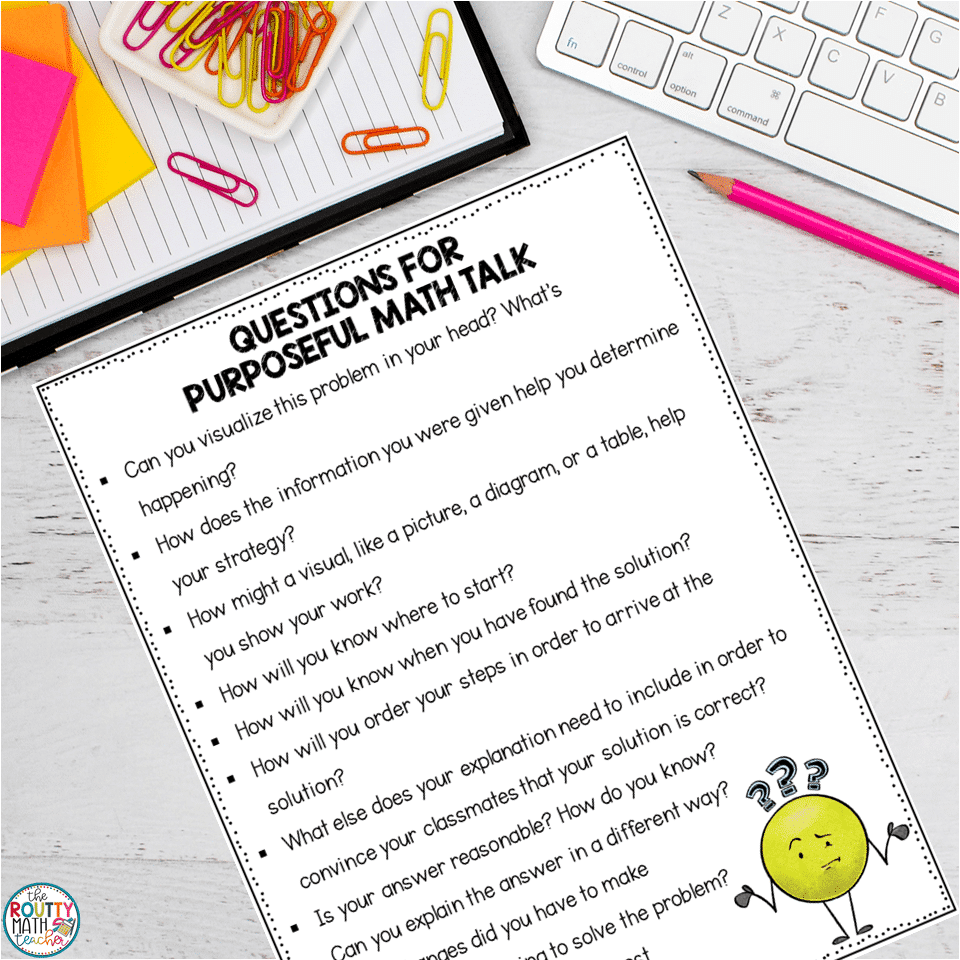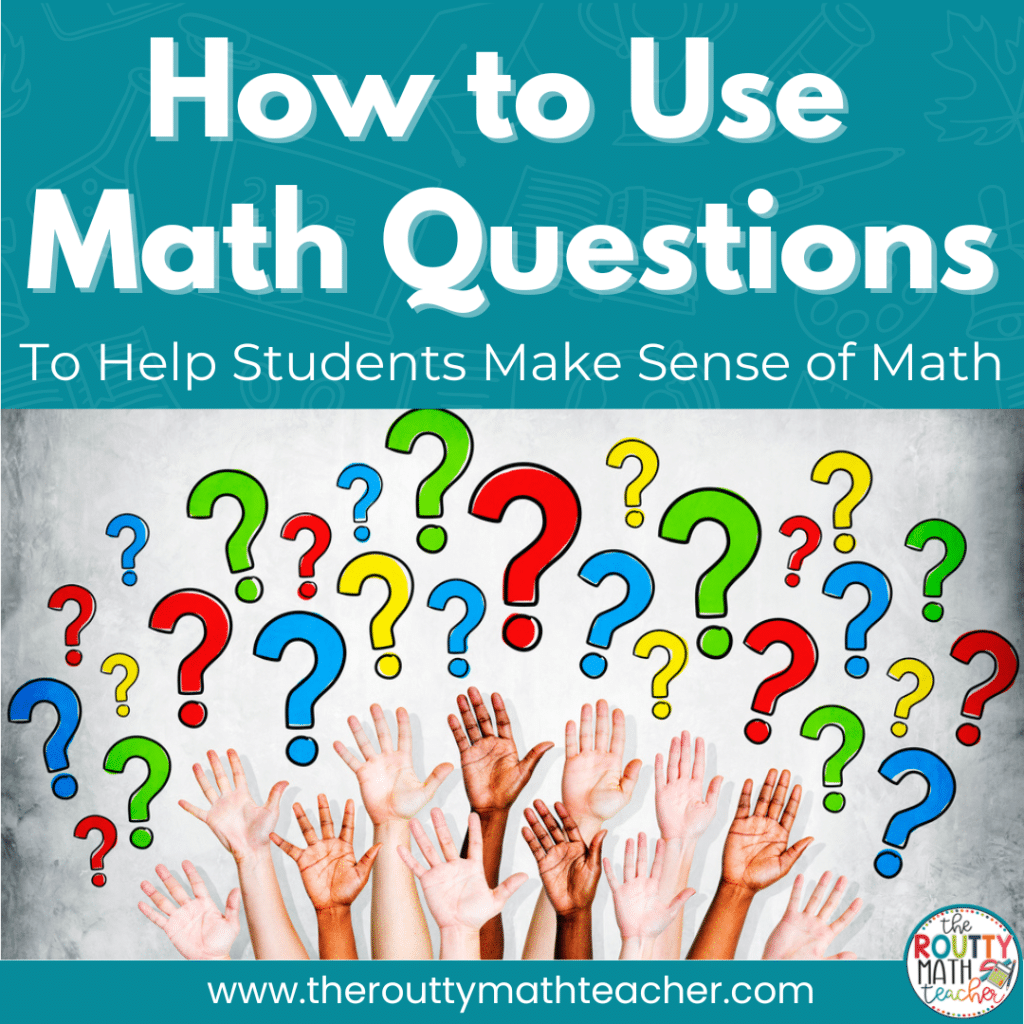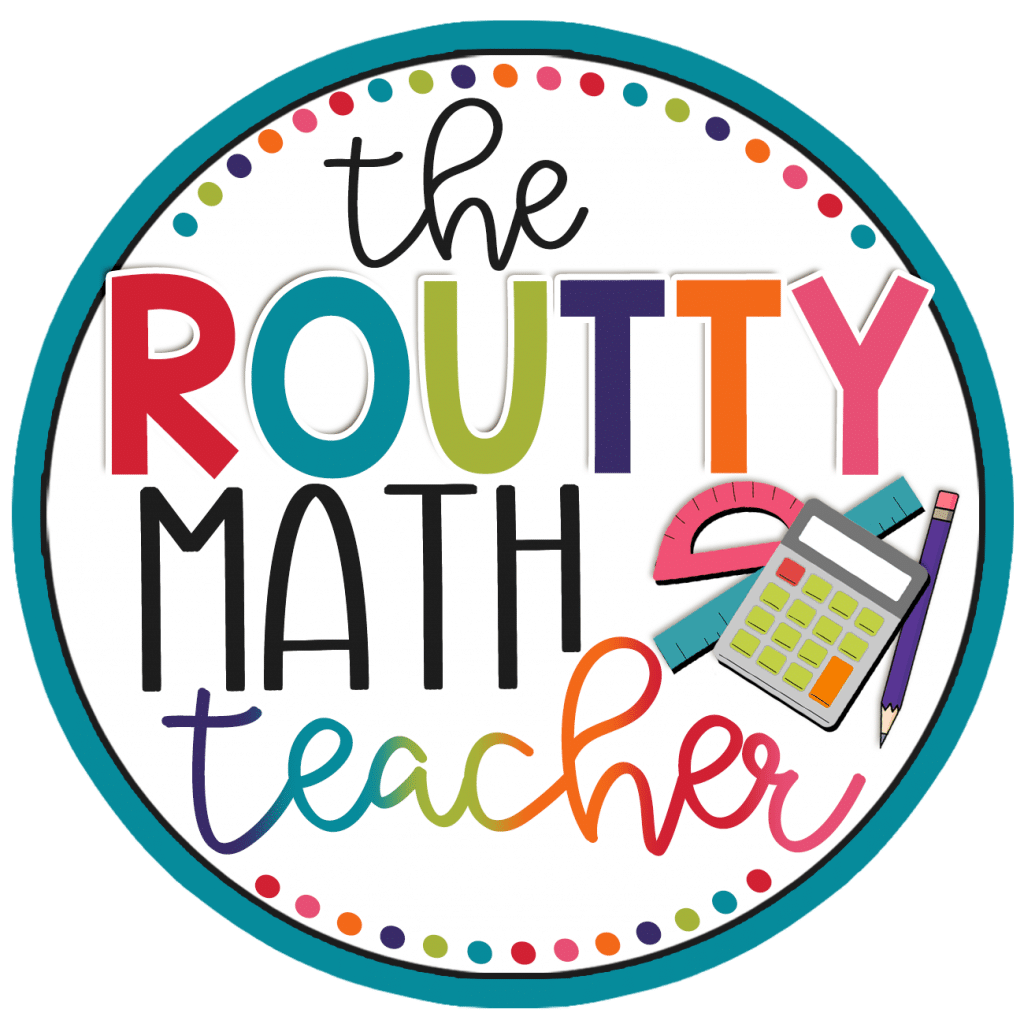As teachers, we plan every part of our lesson. But, do you think about the questions you want to ask while planning to help you meet the goals of your lesson? In this post, I share four types of math questions and discuss the importance of thinking about the questions you want to ask during the lesson planning process.
Planning a single lesson can sometimes take hours. And, while we tend to be thoughtful about the activities we choose to do, we don’t always take time to make intentional decisions about what kind of math questions to use during the lesson.
It’s easy to think we know what math questions to ask when we’re teaching the lesson; however, if we don’t plan for the questions in advance, we may miss important opportunities to help our students make connections and understand the content on a deeper level.
What are Good Math Questions?
Asking good math questions is essential to helping students make sense of math. When we make a plan for what questions to ask before the lesson begins, we take the time to consider how students will respond to the new material, what misconceptions students will develop, and what errors they will make. We can then use good math questions to address these areas.
The National Council of Teachers of Mathematics (NCTM) states, “the effective teaching of mathematics uses purposeful questions to assess and advance students’ reasoning and sense making” (p. 35). This means the questions we use must provide opportunities for students to explain and reflect on their thinking to gain a deeper understanding of and make connections between math concepts and skills.
Four Types of Math Questions

NCTM divides the types of questions teachers ask into four categories and recommends using all four types of questions during a lesson.
Gathering Information
This type of question establishes what students know and requires them to recall facts, math terms, or procedures.
Examples of these types of questions include:
- In your own words, what question are you trying to answer?
- What information were you given in the problem?
- How does the information given help you determine your strategy?
- What information do you need to answer the question?
- What does ________ mean?
Probing Thinking
These questions draw out student thinking and require students to explain, clarify, or elaborate on their thinking. This type of question includes communication about the steps necessary to find a solution or complete a task.
Examples of these types of questions include:
- How might a visual, like a picture, a diagram, or a table help you show your work?
- What strategy are you going to use? Explain.
- How do you know where to start?
- Can you explain your steps? What’s next?
- Will estimation help you find the answer?
- How will you know when you have found the answer?
- How will you order your steps?
Making the Mathematics Visible
This type of question provides opportunities for students to explore the structure of mathematics, connect mathematical ideas, and look for relationships between concepts.
Examples of these types of questions include:
- How does your strategy compare to _______________’s strategy?
- What other math skills connect to this problem?
- How might what you learned here help you solve another problem?
- Where can you find this type of problem in the real world?
Encouraging Reflection and Justification
These questions allow students to dig deeper and reveal their understanding of the concept or skill. They also allow students to highlight their reasoning and justify their actions.
Examples of these types of questions include:
- Is your answer reasonable? How do you know?
- Will that solution work in all cases? Can you find a counterexample?
- What changes did you have to make while you were trying to solve the problem?
- Will this method work with other numbers or in other situations?
Asking Good Math Questions Matters
The types of math questions we ask and the manner in which we ask them is essential to developing student understanding. It’s important we avoid funneling our questions, leading students to a predetermined procedure or outcome based on our thinking, and work toward focusing our questions to guide students using their own thinking and ideas.
As you prepare for your next lesson, be sure to make a plan for the questions you will ask and think through the way your students may respond so that you have appropriate follow-up questions.
Ready to get started? Download my good math questions guide using the form below.
Sound Off!
What tools do you use to plan for purposeful math questions during math talk? Share your thoughts in the comments section below.
Reference:
NCTM (2014). Principles to actions: Ensuring mathematical success for all. NCTM: Reston, V.A.






